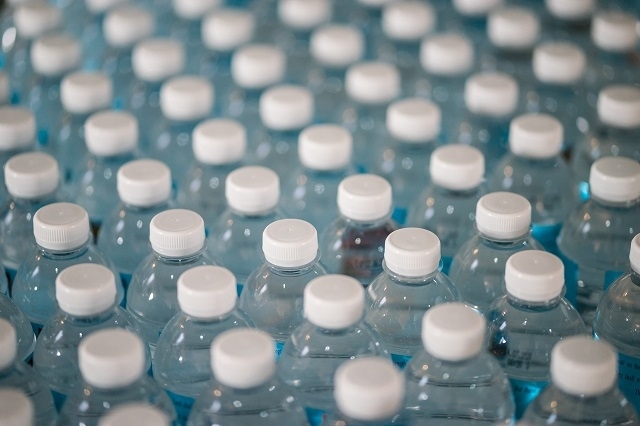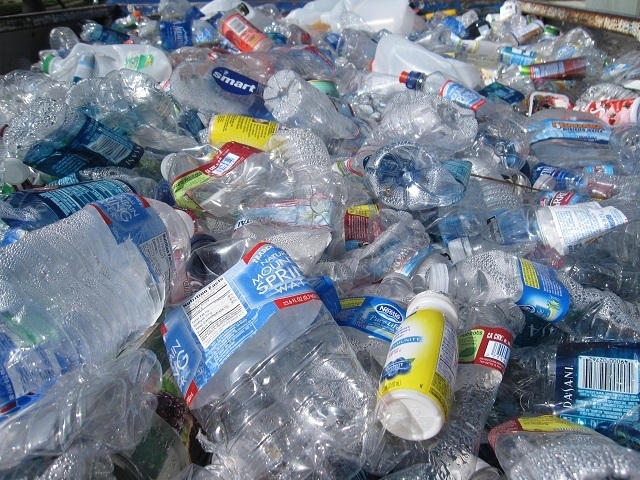Plastic waste? No problem! Your guide to recycled plastic
Published: 16/03/20 By: Mike Bekin
Timber may be the only renewable building material, but with plastic one of the biggest environmental threats of the modern world, there’s another marvellous variation of plastic that’s helping to change the fate of our planet.
Plastic is among the most relied upon modern inventions, but its use has spiralled out of control. An astonishing 8.3 billion tonnes of virgin plastic has been produced to date, and as of 2015, around 6.3 billion tonnes of this has become non-biodegradable plastic waste.
With the devastating issues – such as human and animal health risks; land, air and water pollution; and food chain infiltration – uncovered in recent years, it’s safe to say we have a big problem. Recycling all this plastic is however revolutionising plastic waste streams as we know it. Below, we share our guide to recycled plastic and ask the question – could this help us enjoy the best of both worlds?
The problem with plastic
Plastic is everywhere. We encounter some form of plastic every hour of every day, from the plastic bottles in our homes and plastic bumpers on our cars to those cheap plastic pens stockpiled on our office desks and the tiny plastic microfibers in our clothes. There’s no getting away from it.
Whatever its use, plastic is non-biodegradable. Unlike timber, paper and food, plastic will not easily decompose and subsequently lives on in our environment for hundreds of years. What makes matters worse is that a huge proportion of the plastic produced is single-use, meaning it will just keep accumulating over the decades.
So, how bad is the world’s plastic problem? Plastic endangers the lives of humans and animals; causes land, air, groundwater, and water pollution, and interferes with the food chain. Plastic’s harrowing lifecycle and devastating effects are more apparent in our seas than anywhere else as The Independent explains:
“Not only is this harmful to the environment and the oceans, but it is also harmful to wildlife – where it impacts nearly 700 species in the ocean, and humans.
According to the Ocean Conservancy, plastic has been found in more than 60 per cent of all seabirds and 100 per cent of sea turtle species. Ingesting plastic has life-threatening effects on wildlife – and some of this plastic eventually ends up being digested by humans.”
How recycled plastic can help
Recycled plastic is made from pre- or post-use plastic. Pre-use plastic can be leftovers from industrial processes, whilst post-use plastic is recovered plastic scrap or waste that has been discarded after fulfilling its intended production purpose. What matters is that with recycling, plastic can be given a new purpose.
Recycled plastic is actively reducing the amount of plastic in the waste stream. While the plastic remains non-biodegradable, recycling means it is being diverted from landfill where it would take hundreds of years to decompose and instead reassigned as better solutions across several industries – including the building sector. Recycled plastic is also providing eco solutions for canals, rivers and marinas thanks to its properties. Recycled plastic is waterproof, highly durable and resilient, and easy to drill, cut and shape for example. With this in mind, it makes perfect sense to take advantage of plastic’s properties and put this virtually indestructible material to good use rather than see it damage marine life and the wider planet.
Applications for recycled plastic
 With recycled plastic you can get the best of both worlds. It delivers the usability of wood and longevity of plastic, and also limits environmental issues caused by plastic waste.
With recycled plastic you can get the best of both worlds. It delivers the usability of wood and longevity of plastic, and also limits environmental issues caused by plastic waste.
By repurposing plastic through recycling, new products such as fenders, decking, cladding, bearers, piles, sheet piling, and furniture components can be produced. These new applications ensure that all useless plastic in landfill can be put to a type of service where durability is fundamental.
For further information on how recycled plastic can be used on your project, please click here. Contact us for details and prices.
Tags: Recycled plastic
Categories: Insights
